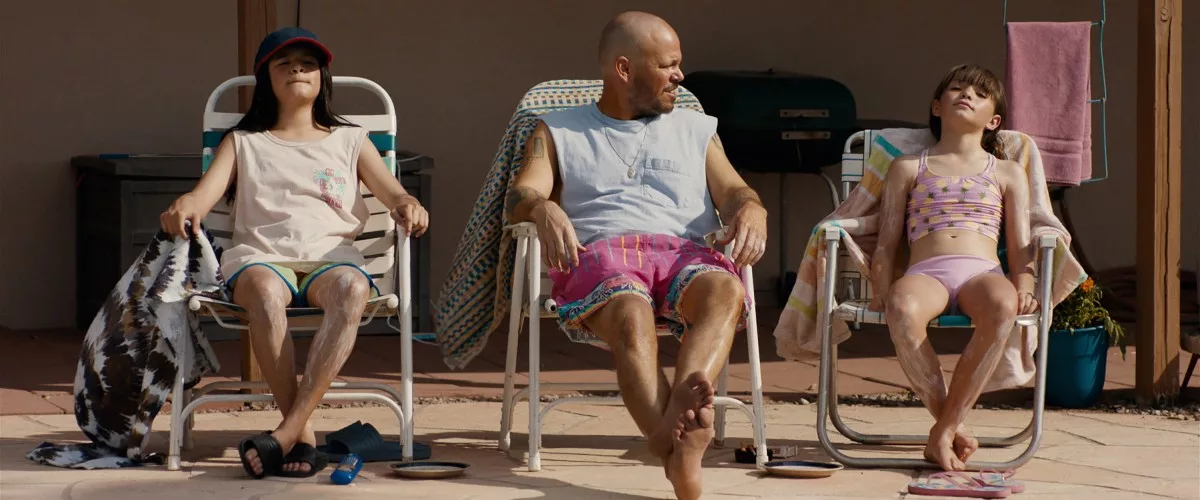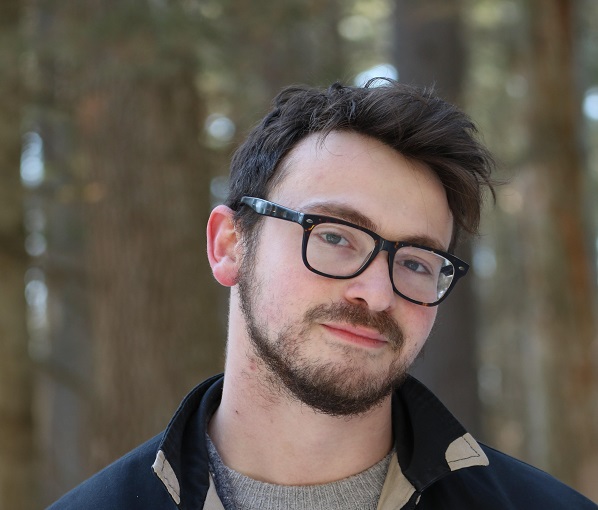Told in four chapters that span two decades, Alessandra Lacorazza's "In the Summers" follows the relationship between two sisters and their troubled father, whom they visit over the years in Las Cruces, New Mexico, as their formative experiences are irrevocably altered by his volatile, yet vulnerable, disposition.
It's the stuff of which classic melodramas—with their heightened emotions and moral dilemmas—are made. But Lacorazza, a debut filmmaker whose screenplay was inspired by her own family history, takes a gentler approach that swells most in small silences and renders the film's main narrative conceit—that, as they grow, the sisters are portrayed by different sets of actors, each pair building upon the fine-grained emotional expression of the last—miraculously without artifice.
In Lacorazza's hands, the film becomes less about individual memories of a fraught childhood than their gradual accumulation; it's not slice-of-life but rather summation-of-self, for all three protagonists. It reflects the ways in which those fleeting moments we spend with our families add up, however happily or unhappily, to the first draft of a personal history we're then left as adults to parse and process.
Vicente—played in a commanding, quietly devastating debut performance by the Puerto Rican rapper René "Residente" Pérez Joglar—is a complicated figure in the lives of his daughters, Violeta (Dreya Renae Castillo) and Eva (Luciana Quinonez) from a young age. Divorced from their mother, who still lives in California, he's since returned to the city of his childhood—shot by cinematographer Alejandro Mejía, who casts this desert mesa in soft, nostalgic hues before the light grows harsher and harder— and fallen back into patterns of destructive behavior that, we're led to understand, contributed to the marriage's dissolution.
But when he picks his daughters up in front of the airport and drives them back to his mother's adobe-style house, which he's inherited, Vicente is in high spirits; swimming with them in the backyard pool, holding court around a billiards table in the neighborhood bar, sharing his interest in stargazing, he's playful and affectionate, clearly intelligent and eager to share what he knows—or at least what he thinks he does—with his children, who soak it up. Even in this first chapter, one can recognize early signs of trouble in the cigarette over Vicente's ear and his overindulgence in alcohol. Still, it comes as a shock when, while taking his daughters home, he starts to drive erratically, joking around, failing to see what we see: Violeta, startled in the backseat, not buckled in and keenly aware, as Vicente nearly crashes, that trusting him to get them home safely was a mistake. Quietly, she seems to say to herself, "I won't let that happen again."
Small but significant, this moment is one of several that first summer with lasting consequences in how it shapes not only the way Vicente's daughters see him but the way they see themselves in relation to his presence and absence, his attention and neglect, his tempestuous emotions. Lacorazza's interest is not in explosive confrontations between parents and children—though a few moments at which long-simmering antagonism between Vicente and Violeta bubbles over into physical force are afforded the impact they warrant—but in subtle, finely detailed sequences that reflect her characters as they present themselves to one another: tense, tender, and in their own ways trying, if not always to work toward something better than at least to recapture the fading magic of happier days.
But each of the chapters is separated by still-life tableaux resembling Dutch Vanitas, altars filled with framed family photographs, and other memento mori that, though soundtracked by lively Latin music, remind us of how relentlessly time passes, without a second thought for our best intentions. When the children visit their father next, they've grown—Eva (now played by Allison Salinas) into a young woman desperate for her father's affection, Violeta (Kimaya Thais Limón) into an older, wiser sibling who's wary of him. Violeta, now wearing her hair short—like the local bartender, Carmen (Emma Ramos), a childhood friend of Vicente's who steps up for the girls when she needs to—is enamored of a Las Cruces resident, Camila (Gabriella Elizabeth Surodjawan), whom her father occasionally tutors in physics. Eva, whom Vicente disparagingly remarks "looks just like her mother," just wants him to see her as worthy, on her own merits, of his interest.
Vicente, for his part, is struggling with what Violeta now recognizes as alcoholism, and he's prone to outbursts that push her further away, especially amid her exploration of an emerging queer identity that connotes more agency than Vicente can accept. That summer, with his once-vibrant home falling into disrepair and the pool increasingly stagnant with mud and leaves, Vicente squats in the ruins of his life, and the high mesa of Las Cruces takes on a dank, humid quality as well — left unattended one day as their father tries to find work, Violeta and Eva prod at the rotting corpse of a squirrel in the underpass.
The visit ends abruptly, with Vicente at fault for a traumatic accident, and Eva comes back alone the next summer to find that her father's new wife (Leslie Grace) has moved in, along with their newborn. That Violeta stayed home in California so upsets Vicente that Eva, in his eyes, is a consolation prize. She's in for a lonely few months. At the bar, Carmen looks on with pity as Eva, who brushed up on billiards to impress her father, finds that beating him has the opposite effect; as the teenage Eva, Salinas carries this middle section of "In the Summers" through expressive eyes that widen with hope at Vicente's occasional entreaties and brim with tears at his rejection.
In the film's final chapter, set years later, Violeta (Lío Mehiel) and Eva (Sasha Calle) return to Las Cruces as adults, hardened by their past experiences and less interested in bonding with their father than paying their respects. Violeta, who's since transitioned, will be starting graduate school in the fall. Eva, now a heavy smoker hiding beneath thick sunglasses, is nursing sadnesses of her own—some from last summer, some not—that keep her at a distance Vicente can't hope to close. It's painful, but never cruel, the way Lacorazza reveals the boundaries these two have drawn up, and the mixture of resentment and pity that fills the space between them. Without explicating most of what's transpired in the years between they last saw each other, Lacorazza makes clear there will be no climactic arguments or reconciliations here, not even healing: just the tracing of old wounds, to reflect on how they got there, and a chance to traverse familiar ground with new appreciation for what it meant and means.
Mehiel and Calle are gifted performers who illuminate their characters' intimate anguishes and the love that binds them together. However, the emotional impact of "In the Summers" is cumulative, given how they build on the strengths of the younger actors, all of whom play their parts with grace and skill. As an ensemble, they achieve something extraordinary: the sense of a father-daughter bond unraveling in real time. To that end, the performance of Joglar, capturing the full measure of a man whose protective instincts and genuine love for his daughters are clear but whose frustrations get the better of him when it matters most, is most heartbreaking of all. "You guys did okay without me," he says at one point, late in the film—an admission of fact, and of failure, all the more brutal for its plain-spoken nature.
Winner of the top two prizes—the U.S. Dramatic Grand Jury Prize and the Directing Award—at this year's Sundance Film Festival, "In the Summers" is remarkably attuned to setting. In her various chapters, Lacorazza takes time to luxuriate in the beauty of Las Cruces, with glittering night skies suggesting wide-open potential and rocky mountain vistas reflecting the characters' winding paths beneath it. When the adult Violeta and Eva accompany Vicente across stunning white sand dunes, watching closely as he nurtures now-adolescent daughter Natalia (Indigo Montez), time seems at once to rush by and slow to a standstill, the hourglass—impossibly, for a moment—turning over. With all the weariness and wisdom of someone who's lived this story, or at least a version of it, Lacorazza makes it clear you can never begin again. But you carry who you were, where you've been, and what it taught you into everything that happens next, and you keep going.




















